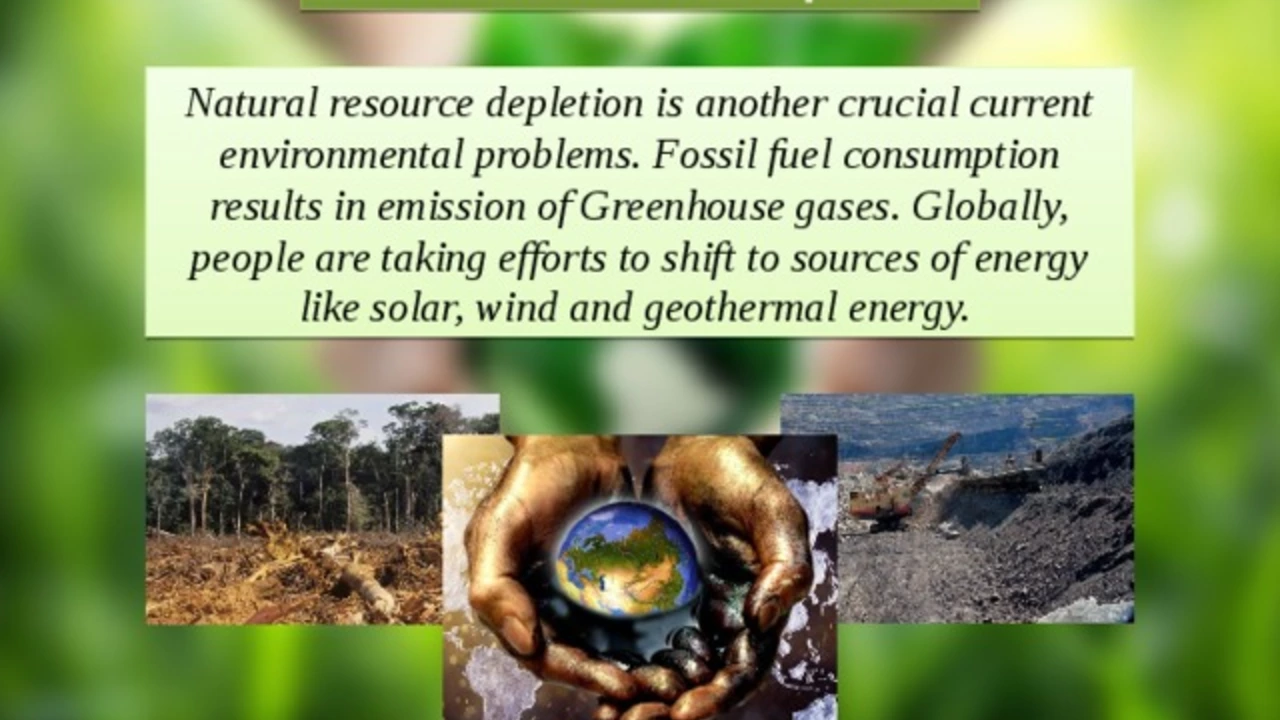Understanding Natural Resources
We often hear the term 'natural resources', but what exactly does it mean? Natural resources are elements from the environment that we use for various purposes. They include air, water, sunlight, minerals, plants, and animals. These resources are crucial for our survival and well-being. They provide us with food, energy, and materials for various products. For example, we use trees to make paper and furniture, and we use oil and gas to fuel our cars and heat our homes.
However, the extraction and use of some natural resources can have negative impacts on our environment. They can cause pollution, which affects our air, water, and soil. This pollution can have severe consequences for our health and the health of our planet. In this article, we're going to focus on one of these natural resources that can cause pollution.
The Role of Fossil Fuels
One of the most significant natural resources that contribute to pollution are fossil fuels. Fossil fuels are hydrocarbons, primarily coal, fuel oil, or natural gas, formed from the remains of dead plants and animals. They are used to generate energy in the form of electricity and heat, and they also power vehicles and machines. Fossil fuels are a critical part of our modern life, but their extraction and consumption come with a heavy environmental cost.
When we burn fossil fuels, they release various pollutants into the atmosphere. These include carbon dioxide (a greenhouse gas that contributes to climate change), sulfur dioxide, nitrogen oxides, and particulate matter. These pollutants can cause smog, acid rain, respiratory problems, and other health issues. Furthermore, the extraction of fossil fuels can also lead to land degradation, habitat loss, and oil spills, which can harm wildlife and ecosystems.
Impacts of Air Pollution
Air pollution is one of the most visible impacts of burning fossil fuels. This pollution can significantly affect our health and the environment. It can cause or worsen respiratory diseases like asthma and bronchitis, and it can also lead to heart disease and cancer. Furthermore, air pollution can harm animals, damaging their lungs and other organs, and it can also affect plants, reducing their growth and productivity.
In addition to health impacts, air pollution can also have profound effects on our climate. Many of the pollutants released by burning fossil fuels are greenhouse gases, which trap heat in our atmosphere and lead to global warming. This warming can cause severe weather events, sea-level rise, and other changes that can have devastating impacts on human societies and natural ecosystems.
Water and Soil Contamination
Another significant impact of fossil fuel use is water and soil contamination. Oil spills, for example, can have disastrous effects on marine and coastal ecosystems. They can kill fish and other wildlife, damage habitats, and contaminate the food chain. Moreover, the cleanup of oil spills can be costly and time-consuming, and in some cases, it may not be entirely possible to restore the affected environment to its original state.
Soil contamination is another serious issue. Mining for coal and other fossil fuels can lead to the release of harmful substances into the soil, including heavy metals and radioactive materials. These substances can harm plants and animals, and they can also enter our food chain, posing risks to human health.
Transitioning to Cleaner Energy Sources
The problems associated with fossil fuels have led many to call for a transition to cleaner, renewable energy sources. These include solar power, wind power, and hydropower. These sources of energy do not produce the harmful pollutants associated with fossil fuels, and they can provide a sustainable solution to our energy needs.
Transitioning to cleaner energy sources is not without its challenges. However, with concerted efforts and innovative technologies, we can reduce our dependence on fossil fuels and move towards a cleaner, healthier, and more sustainable future.
In conclusion, while fossil fuels have played a crucial role in our development and progress, their extraction and use can cause significant pollution. By understanding these impacts, we can make informed decisions about our energy use and work towards reducing our environmental footprint.

